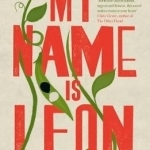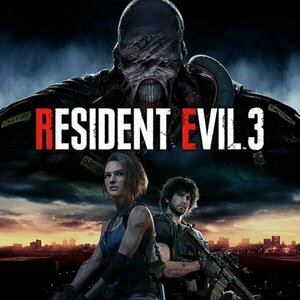Eilidh G Clark (177 KP) rated My Name is Leon in Books
Jul 2, 2019
Leon has begun to notice things what make his mum cry: when Jake makes a lot of noise; when she hasn't got any money; when she comes back from the phone box; when Leon asks too many questions; and when she's staring at Jake, (p.12).
After Carol takes to her bed, Leon, at just nine years old, takes on the role of carer and parent. Through the eyes of this young boy, the reader watches his world fall apart, fragment by fragment.
Eventually the boys are taken into care and find solace in the home of Maureen, an experienced foster carer with a deep love for both cakes and children. Maureen is a lovable character who feels a deep affinity for Leon, even though Leon is highly suspicious of anyone in the care system, but when Jake is adopted, it is Maureen who picks up the pieces. It is perhaps her honesty rather than her role as parent that soothes Leon in his most difficult times:
'Now listen carefully because I want you to understand something and I don't say this to all the children because it's not always true but with you it's true so you have to believe it. And when you believe it you will stop grinding your teeth [...] You will be all right, Leon.' (p.55-56).
But when Maureen is taken into hospital, Leon is left with Maureen's sister Sylvia, a less motherly role model than Maureen but with a desire to please her sister none the less. Their relationship is strained and often uncomfortable, but soon enough Leon finds comfort in a new friend, Tufty. Tufty is a young man who looks after a plot in his father's allotment. The man and the boy form a friendship that grows alongside the seeds that they plant in the garden, so when they both find themselves in the midst of the Birmingham riots, they naturally come together to save each other.
This is a coming of age story unlike any other, it is not a happy ever after but hope for a child and his future.
I love this novel, it is clearly written with believable characters and honest emotions. At the start of the novel I was concerned about the character's point of view - a third person limited perspective from the child's perspective - but it is cleverly done. While the reader gathers glimpses of emotions from inside Leon's head, there is still enough distance to feel the tug of the story from the outside. It is as if the reader is holding the child's hand and experiencing his life with him as it unfolds. Brilliantly done and brilliantly written. Go Leon.
KalJ95 (25 KP) rated Resident Evil 3 (Remake) in Video Games
Apr 10, 2020
No, not in the slightest.
RE3 feels rushed, as if Capcom listened to fans begging for their next slice of nostalgia, and wanted to capitalise on the success of RE2. While RE2 felt like a continuous flow of Leon/Claire's story, RE3 feels like segments, all separated within cutscenes. This is more evident when you keep flitting between Jill and Carlos, both of whom don't have as much charisma or emotional weight as Claire or Leon. The opening is a blast of adrenaline and bullets, all contained within the beautifully burning remains of Racoon City. There is just enough exploration, puzzles and zombies to keep you satisfied. That is until Nemesis enters the game. As soon as the indestructible behemoth appears for a second time, the cat and mouse chase begins. Reminiscent of Mr X but on steroids, he simply never lets up, constantly on your back, looking to kill Jill whatever it takes. It's utterly relentless, thrilling, heart-pounding. This section was everything I expected RE3 to be.
Then everything collapsed under sections of nothing more than point and shoot. I know, this is RE, but the fear feels drained from the experience. Nemesis himself becomes a background character, simply added to the story just for boss battles. His pursuit of Jill doesn't feel spontaneous, but scripted, exactly the opposite of Mr X. The realisation of how disappointed I felt towards RE3 was when I discovered sections of the game were simply reused from RE2. The creativity that went into RE2 was so meticulous, crafted and positioned for the players experience. When I entered the Police Station with Carlos, a mass onslaught of zombies gathered in one section, only meant for me to rain bullets upon them. And this is the issue with the entire experience. Its nothing more than a five hour storm of sections of shooting monsters.
I do hate this game though. RE3 is fun, and anything remotely like last years experience I will play and enjoy. The story of Jill's residency in Racoon City being turned upside down over the space of a few days is excellent, and the new sections are all well fleshed out and great to explore, especially Racoon City and the Hospital. Its extremely short, and for a full retail price I think its absolutely scandalous, but there's so much replay value here.
If I had to end the review here, I want to end it on a message solely centred at Capcom. Why, in the name of God did you focus your time on the multiplayer mode, Resistance, rather than properly making RE3 a full experience? The past tells you Resident Evil doesn't work well mixed with multiplayer. For as much fun I had within my four hours and thirty two minute playthrough, this game is nothing more than DLC for RE2. And that hurts.

Essential Anatomy 5
Medical and Education
App
Essential Anatomy 5 is the most successful anatomy app of all time and has more content and features...

Block GuRU Lite
Medical and Education
App
GuRU is an offline* teaching App covering single shot and continuous peripheral nerve blocks. The...

Captain Lazy Eye Full
Medical and Games
App
In cooperation with ophthalmologists with experience in successful amblyopic treatment, the first...

Case Files Pathology, 2nd Ed. LANGE
Medical and Education
App
The Case Files series is an award-winning learning system proven to improve exam scores. This series...

iDoctor Pro - Medical Record
Medical and Health & Fitness
App
iDoctor Pro Medical History is the most complete database for control patients, designed especially...

MD on Call - Practical Guide 2017-18
Medical and Education
App
"MD On Call is a fantastic app for junior doctors and residents who want a handy safety net for when...

Femisphere Pregnancy Tracker
Medical and Health & Fitness
App
Awarded by the IFA+ Summit as well as the the German Accelerator (German Federal Ministry of...



Eilidh G Clark (177 KP) Jul 2, 2019
ClareR (6067 KP) Jul 2, 2019